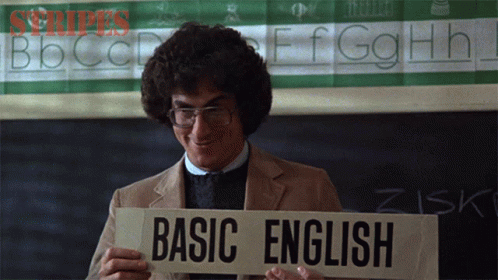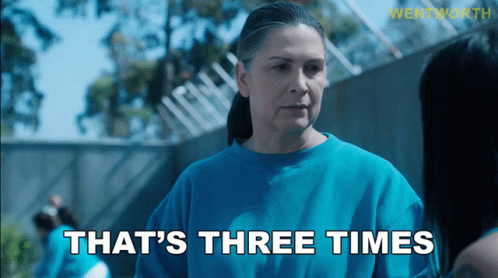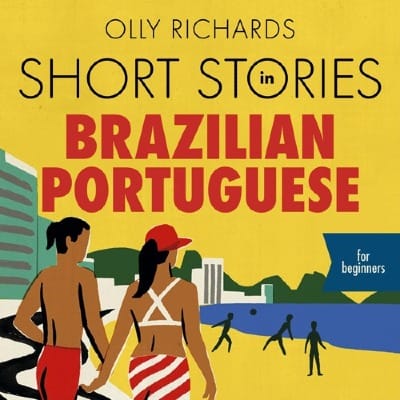It takes only 400 words of Basic to run a battleship. With 850 words you can run the planet.

Let's just say my track record with languages isn't the best. I've tried and failed more times than I'd like to admit...
First, there were those 8 glorious years of French in middle and high school. Between uninspiring teachers and my general dislike for the subject (right up there with physics and chemistry), it's a miracle I remember anything at all.
Merde... 💩🇫🇷
Then came a decade in the Netherlands – a country I adored – where I still managed to avoid learning Dutch. Sure, the Dutch are practically fluent in English, but I did try...four times, actually.
The first three attempts were pure drudgery – boring textbooks, extremely long sessions (sometimes 3 hours), uninteresting subjects... Every single class felt like a nightmare.
But then, a glimmer of hope! On my fourth attempt, I found some decent in-person classes and actually started to pick up some words and phrases. I could even understand random signs in Amsterdam. Things were looking up!
Until...dramatic pause...the pandemic hit 😷. Classes went online, and let's just say long online sessions after a full workday in front of a computer (in the middle of a pandemic) weren't exactly my idea of fun. I couldn't focus and eventually gave up. Then, to top it off, I moved away from the Netherlands.
Godverdomme... 💔 🇳🇱
My last failed language venture was back in the Netherlands when I decided to try Spanish. Honestly, I wasn't sure why I was even bothering with another language. At that time, I was living in the Netherlands and I was not speaking the local language 😆. Eventually I quit Spanish as well.
Cooo-jones! 🥜 🇪🇸
So how the hell am I going to give you advice about learning a new language? 😄
After so many failed attempts I gave myself the following mission:
At some point in my journey, I found the concept of Basic.
Basic English is a simplified version of English that uses a limited vocabulary and grammar. It was intended to make English easier to learn and serve as an international communication tool. With only 850 core words, Basic English focuses on the most common nouns, verbs, and adjectives for effective communication.
Now, the following question struck me:
How many words do we use on average in communication per day?
The average person uses around 800 unique words during a typical day. Even for people who use more specialised words, like doctors, the amount of unique words rarely goes over 1,000.
This finding blew me away! Does it sound difficult to learn 850 words?
No! Definitely not.
I knew Basic is not everything though. It has to be more than just memorising words. Language acquisition seems and is a bit more complex. As a result, on top it I added some of the other critical elements in language acquisition:
- Meaning: Have an internal motivating reason to learn it as this process takes time. For instance, I wanted to learn Portuguese since my girlfriend is Brazilian and I was travelling there often.
- Word exposure: get exposed to new words in different contexts via reading, listening and speaking.
- Speaking: Speak about topics you enjoy with people who you enjoy being around, as often as you can, at least a few times a week.
- Failing 'safely': There are two types of failing - failing and getting penalised or failing in a safe environment. I will expand on the second type of failing, which by the way, is highly encouraged.
- Engagement: Find engaging ways of interacting with the language. I will provide a series of tools that can help with that.
Besides Basic and the elements that should be part of anyone's journey, I also knew what the new framework shouldn't include.
My goal was to make the process as engaging as possible, free of boring, tedious or uninteresting elements, such as:
- Flash cards 🗃️- they can be great if you want to focus on learning something that you don't need to remember next week. Acquiring new words is more contextual than just seeing them on a piece of paper.
- Test & Quizzes 💯 - Yes, I know I don't know the language, why do I need to be reminded of that? Not everything has to be tested and language is one of them, especially at the beginning and especially if your goal is to just communicate with others. I know I am going to make mistakes, it's part of the process. I should be encouraged to make more mistakes, instead of being penalised.
- Textbooks 📚 - when I think of the examples in the regular textbook, the amount of uninteresting, dull stuff... I now understand why I quit so many times. Who wants to be engaged with stuff that's boring and uninteresting? Luckily I found some alternatives to reading, which will be shared below.
- Grammar 📐 - Memorising grammar rules and tables as a beginner is not the most fun way to learn a language. Instead get enough exposure and then go back and refine the understanding of grammar.
- Boring Classrooms 👭 - If you are part of a fun classroom, keep it, you're lucky! Most of them, either online or in-person, are pretty boring since they follow the standard way of learning, focusing on grammar, rules, pronunciation - things that are important, but that should be introduced in the game much later.
This framework won't teach you the academic intricacies of a new language, but it will help you grasp the essentials for everyday conversation.
After going through this framework, here's what you'll get:
- 850 Basic English Words: Learn the most frequently used words, categorised for easy acquisition. While the most common words may differ between languages, English provides a strong starting point. After downloading the spreadsheet you can easily supplement with words specific to your target language.
- A Structured Learning Framework: Discover my proven framework for learning Portuguese. This system, while adaptable to your preferences, provides a logical, and very importantly, fun 🥳 foundation for language learning.
Is this approach right for you? This language learning framework is ideal for beginners who are self-motivated and want to learn an European language.
Structured Framework
Let's jump into the framework!
I've broken down the language learning process into 5 stages. Each stage focuses on two core elements:
- Words: You'll be exposed to targeted vocabulary, starting with the most frequently used words.
- Actions: We'll focus on engaging ways to connect these words, such as speaking and reading.
Here's a breakdown of the 5 sequential stages in this structured framework:
- Stage 1: 100 Basic Words 🔡
- Stage 2: 250 Basic Words + Basic Grammar Rules 📐
- Stage 3: 500 Basic Words + Speaking Practice 🗣️
- Stage 4: 850 Basic Words + Reading Practice📕
- Stage 5 : Beyond Basic + Perfecting your Skills 🎓
The word counts presented above are guidelines to help you track your progress. Language learning is fluid! You don't need to memorise every word perfectly before moving on.
You might recognise some words when reading, but have trouble recalling them when speaking. Use these guidelines as a way to estimate your readiness for moving on to the next stage.
Stage 1️⃣ 100 Basic Words 🔡
Start with Duolingo or a similar beginner-friendly app to acquire your first 100 words.
Be aware of not falling into the trap of only sticking to Duolingo. It's a great app, it feels easy and it feels like you are learning, but this whole process is way too complex to be that simple.
At start, focus on two types of words:
- Nouns: Objects you use and see daily (family, father, flower, house, etc.)
- Important Verbs: to have, to do, to say, to see, to be.
I've compiled a list of the 850 most used English words, easily translatable into your target language. This list categorises words by:
- Stage of Learning: prioritised from stage 1 to 4 based on frequency.
- Type: verb, preposition, noun, etc.
- Category: space & time, family & people, construction etc.
This list will provide a strong foundation, making your journey towards basic fluency much smoother.

Stage 2️⃣ 250 Basic Words + Basic Grammar Rules 📐
In this stage, we'll lightly touch on some simple grammar rules. A tiny bit of structure will help connect your newly acquired vocabulary. We'll be able to create sentences. Here's what we'll focus on:
- Linking Words: We'll expand your toolbox with verbs, pronouns, and those helpful words like articles, prepositions, conjunctions, and adjectives ("you," "she," "that," "this," "and," "so").
- Essential Grammar: We'll focus on the two easiest to learn tenses (present simple and either past simple or future – whichever is easier in your target language).
You'll be surprised how many sentences you can create with just 250 words and these two tenses...
Start writing down your favourite activities, people you enjoy spending time with, future plans, what you eat... anything that comes to mind.
This will propel us into the really fun part – Stage 3, where we'd use these sentences to have real conversations.
Stage 3️⃣ 500 Basic Words + Speaking Practice 🗣️

After learning 250 words, it's time to start speaking! Speaking might seem intimidating at first, and basic conversations will be difficult. But that's exactly where we want to be – making mistakes and learning from them!
When it comes to language learning, we learn five times faster by making mistakes while speaking. You just remember them vividly!
That's how I finally learned how to order coffee in Portuguese. After telling a colleague I was learning the language, he playfully put me on the spot by asking me to talk to our Portuguese-speaking barista while getting coffee.
The truth is, I'd only just started using Duolingo! 😆 My heart raced, and all I could stammer out was that it was too early for me to remember any Portuguese.
That moment was overwhelming and I don't believe those kinds of experiences are the best way to start. It's like getting hit by a truck on your first day of school.
Failing doesn't have to feel like you're hit by a truck!
This experience actually motivated me to find a better way to practice speaking. Somehow I knew speaking at the beginning was an essential component to learning a new language quicker! I just needed a safe, comfortable environment where mistakes were not just okay, but expected.
After some research, I found the perfect solution: Preply! This app lets you:
- Choose a tutor you like based on your budget.
- Have dedicated 1:1 sessions tailored to your specific level.
- Book convenient 50-minute sessions whenever you want.
The 50-minute session doesn't have to follow a boring textbook. You can discuss interesting topics at your own pace. Since it's 1:1, you never have to wait for others to participate in conversations you don't care about.
❗PRO Tip: Do not use Google Translate during the speaking sessions. I've personally experimented with this and I realised two things.
On one hand, the conversation seems more fluid. On the other hand, you don't learn much extra by opting in for this practice. It's better to take your time and think about the word you're trying to retrieve, find another alternative, or ask your tutor for help.
Finally, another important element to this stage is to practice as often as possible – I'd recommend at least three times a week.

Stage 4️⃣ 850 Basic Words + Reading 📕
The easiest way to reach 850 words is to expand your vocabulary by reading.
While you can study the words which can be found after downloading the template, a complementary approach is reading.
Being exposed to the same words used in different contexts is the key to committing them to long-term memory.
You might wonder, "What should I read?" The answer depends on the language you're learning and your personal interests.
For example, I found this excellent resource "Short Stories in Brazilian Portuguese for Beginners" by asking Gemini for recommendations.
I am a beginner interested in learning Portuguese and I am willing to completely immerse myself in the language. Could you please recommend some books for beginners which include short stories?

This book is ideal for beginners! It offers multiple short stories with summaries and multiple-choice questions at the end of each chapter, helping you check your understanding.
AI Prompts to Help You Learn a New Language
We're now blessed to live in an era of AI so you can come up with many engaging ways for studying a new language. You just might need some inspiration to ask good questions.
Feel free to use some of the creative prompts I put together for you. And don't forget to give it your own spin on the questions so you can get very personalised answers and learning methods 😉
Stage 5️⃣ Beyond Basic + Perfecting your Skills 🎓
The next level is about sustained immersion – living with the language until you can understand most of what you hear and feel a growing comfort when speaking.
While you might learn new words at a slower pace, consistent reading and speaking are key to making your knowledge truly stick.
There is one more element in the language learning process which we haven't touched upon yet and it deserves a great deal of attention: listening 👂
Training your ear is crucial in language learning, and often proves more challenging than reading or speaking.
After four months of studying Portuguese, I could comprehend 90% of an easy-level text and 70% of an intermediate one. I could also engage in basic conversations with native speakers, thanks to their willingness to adapt to my level. However, when it came to listening, my understanding dropped to less than 40%.
I realised it was time to incorporate new learning strategies and seek assistance from our AI friend Gemini.
I need to improve my Brazilian Portuguese listening skills. I am looking for some podcasts for beginners where I can listen to short, interesting stories. Could you provide me a list of podcasts?
Here are some tips on how to make the most of these podcasts or audio files:
- Short podcasts: Start with shorter episodes of 5 to 10 minutes so you don't feel overwhelmed.
- Transcripts: If available, use transcripts or subtitles, to follow along and understand the words you might miss.
- Play speed: Play the podcast at 0.7x or 0.8x speed so you can comprehend more, given the most probably fast way of speaking.
Below I included some additional tactics to boost your progress in this stage.
b) Movies and TV Series: While it might seem enjoyable, starting with movies and TV series is generally premature before reaching stage 4. Ideally, you would watch content in your target language with subtitles in that same language. This requires a relatively broad vocabulary and an understanding of how words connect to form sentences.
c) Grammar Upgrade: While speaking and reading, you will understand what doesn't stick yet. Take these elements (i.e. a specific tense, conditionals, comparisons) and tackle them with your tutor.
d) Missing Vocabulary: Start keeping a "missing vocab" notebook. Write down words you stumble upon while watching films or reading. Review this list actively for better retention (here you could use flashcards via Anki App for instance).
In the end, I would like to emphasise that this is the stage where you finally take the time to study rules, grammar, perfect your pronunciation and add on all the finesse details. These are very important elements, but not for the first 4 stages of your learning journey.
This last stage is also the one that will take the longest. And the level you'll get is very much personal, depending on the effort you put in, the frequency with which you study...
You can set your own goals. My goal is to:
- comprehend 90% of what I read
- understand 75% of what people speak
- engage in a conversation where I can go in details
And now, at the end, I will leave you with a set of guiding principles for language acquisition.
Good luck on your journey 💪
Set of Guiding Principles
- Goal 🎯 Set a meaningful goal that excites you. Language learning is a long-term project, so having a compelling reason to learn is essential for staying motivated.
- Words 📚 Prioritise the most important words in your target language. Understand that some words are much more common than others. For a starting point, you could use a list of the 850 most frequent English words.
- Fluidity 🧊 Language learning is a fluid process. You may forget words you thought you knew, or understand them when reading but struggle to recall them when speaking. Don't worry – this is normal! Consistent practice is key to building strong associations.
- Speak 🙊 Start speaking early and often. Don't obsess over perfect pronunciation or grammar – just communicate! Making mistakes is a valuable part of learning.
- Time & Frequency ⌛ While this approach can streamline your learning, time invested is still crucial. Aim for at least 30-45 minutes practice a day, every day. Practice speaking at least 3 times a week.
Some Great Resources Summarised for You:
- [App] Duolingo
- [App] Preply (with 10% discount)
- [App] Beelingual


